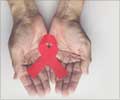French and German scientists credited with the discovery of the viruses behind AIDS and cervical cancer won Monday the Nobel Medicine Prize.
French and German scientists credited with the discovery of the viruses behind AIDS and cervical cancer won Monday the Nobel Medicine Prize, the first of the prestigious awards to be announced this year.
France's Francoise Barre-Sinoussi and Luc Montagnier, who shared one half of the award, discovered the human immunodeficiency virus (HIV) that causes AIDS, one of the biggest scourges of modern times.Harald zur Hausen of Germany won the other half of the award for going against the then-current dogma and claiming that a virus, the human papilloma virus (HPV), causes cervical cancer, the second most common cancer among women.
The French pair's HIV discovery was "one prerequisite for the current understanding of the biology of the disease and its antiretroviral treatment," the Nobel citation said.
Their work "led to development of methods to diagnose infected patients and to screen blood products, which has limited the spread of the pandemic," it said.
Montagnier dedicated his award to AIDS sufferers and predicted results on a "therapeutic vaccine" for the pandemic within four years.
"I think my first reaction is to think of all the people sick with AIDS and all those who are still alive and fighting against the illness," Montagnier told AFP.
Advertisement
AIDS - acquired immune deficiency syndrome - first came to public notice in 1981, when US doctors noted an unusual cluster of deaths among young homosexuals in California and New York.
Advertisement
In May 1983, in a paper published in the US journal Science, a team from France's Pasteur Institute, led by Montagnier and including Barre-Sinoussi, described a suspect virus found in a patient who had died of AIDS.
Their groundbreaking discovery was also helped by US researcher Robert Gallo's determination that the virus was indeed the cause of AIDS.
Both Montagnier and Gallo are co-credited with discovering that HIV causes AIDS, although for several years they staked rival claims that led to a legal and even diplomatic dispute between France and the United States.
The Nobel jury made no mention of Gallo in its citation.
"We gave the prize for the discovery of the virus. The two to whom we gave the prize, Francoise Barre-Sinoussi and Luc Montagnier, discovered the virus," Hans Joernvall of the Nobel committee told AFP.
Acknowledging that the American had "done a lot of other work" in the field, Joernvall noted that Gallo and the two French scientists now "agree that the discovery was made in Paris."
Another member of the jury, Bjoern Vennstroem, said he hoped the award would silence those who claim that HIV does not cause AIDS.
"We hope this will put an end to conspiracy theories and others who defend ideas that are not founded in research," he told Swedish Radio.
Montagnier, 76, is a professor emeritus and director of the World Foundation for AIDS Research and Prevention in Paris, while Barre-Sinoussi, 61, is a professor at the Institut Pasteur, also in the French capital.
"I must admit that I never for a moment dreamt I would hear such news," Barre-Sinoussi told French radio by telephone from Cambodia.
Meanwhile, Zur Hausen was rewarded for his work on what is sometimes called "the silent killer" of women because it is often undetected until it is too late.
"His discovery has led to characterisation of the natural history of human papilloma virus (HPV) infection, and understanding of mechanisms of HPV-induced carcinogenesis and the development of prophylactic vaccines against HPV acquisition," the jury said.
It pointed out that five percent of cancers worldwide were caused by the virus. Fifty to 80 percent of the population is infected with the virus, though not all infections are cancerous.
"This prize means a great deal to me because on the one hand an area has been recognised that has increasingly moved to the forefront in cancer research, namely the role of infectious agents," Zur Hausen, 72, said in an interview with German television.
Today, a simple smear test can detect HPV and there are two effective vaccines against it.
Zur Hausen is a professor emeritus and former chairman and scientific director of the German Cancer Research Centre in Heidelberg.
The laureates will receive a gold medal, a diploma and 10 million Swedish kronor (1.42 million dollars, 1.02 million euros) - half for Zur Hausen and half for the French pair - at a formal ceremony in Stockholm on December 10.
Source-AFP
SRM









